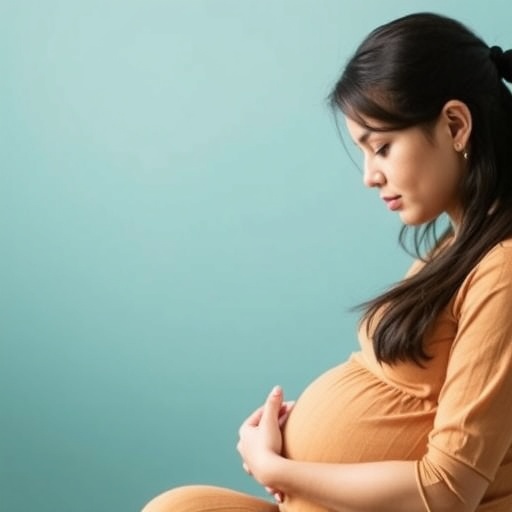A recent study published in BMC Nursing has shed light on the profound impact of psychoeducational interventions in the management of postpartum care. Following childbirth, many women experience overwhelming challenges, including postpartum depression and difficulties with breastfeeding. The research conducted by Özhüner and Özerdoğan highlights the importance of targeted psychological support in mitigating these issues.
Postpartum depression is a multifaceted condition that can severely affect new mothers. It can emerge within weeks of childbirth or even after several months, significantly impacting maternal health, infant development, and family dynamics. The research aimed to explore the effectiveness of psychoeducational interventions in providing new mothers with the tools they need to combat these feelings. This multifocal approach includes teaching coping mechanisms, improving emotional regulation, and increasing social support.
In the randomized controlled trial, the authors enrolled a diverse cohort of new mothers, creating a scientifically robust sample. Participants in the intervention group received structured psychoeducational sessions focusing on the emotional and psychological challenges of motherhood. This included workshops that emphasized both theoretical understanding and practical approaches to address common postpartum difficulties. The control group, however, received standard postpartum care, allowing for a clean comparison between standard and enhanced supportive measures.
Throughout the intervention, mothers were guided through maternal education focused on breastfeeding practices and the recognition of postpartum depression symptoms. Evidence suggests that early engagement in such psychoeducational support can significantly reduce the incidence of postpartum depression. By providing mothers with knowledge and actionable strategies, researchers aimed to empower them to seek help sooner and understand their own emotional health better.
One notable aspect of the study is its emphasis on breastfeeding. Many new mothers often feel a palpable pressure to breastfeed successfully. The psychoeducational content included discussions around breastfeeding difficulties, which are a common source of anxiety among new mothers. By incorporating discussions on breastfeeding challenges, the workshop aimed to alleviate guilt and promote a healthier relationship with feeding practices.
The results of this study offer promising insights into the realm of maternal health. It was discovered that the mothers who underwent the psychoeducational intervention reported significantly lower levels of postpartum depression symptoms than those in the control group. Additionally, these mothers exhibited higher self-efficacy in their breastfeeding practices, leading to better overall breastfeeding rates among this population. This correlation speaks volumes to the power of emotional and psychological support in tandem with physical health practices.
Moreover, the implications of this research go beyond the immediate postpartum period. The psychological well-being of mothers profoundly affects child development. Maternal mental health not only influences a mother’s parenting style but also shapes the emotional and behavioral responses of the child. Therefore, ensuring new mothers have access to psychoeducational resources could pave the way for healthier familial relationships and emotional development in children.
Innovation in maternal health care is crucial, particularly in understanding how psychoeducation can be integrated into routine postpartum care. This study advocates for healthcare providers to incorporate such interventions as a standard aspect of postpartum visits. By cultivating awareness and understanding about emotional health within healthcare systems, the potential for broader societal change is immense.
The findings from Özhüner and Özerdoğan suggest that healthcare practitioners should prioritize mental health support as part of the overall care plan for new mothers. This reinforces the notion that treating postpartum depression is not solely about medication but also about fostering an environment of compassion and understanding.
Integrating these findings into healthcare practices requires a multifaceted approach involving policy change, training for healthcare professionals, and raising awareness among mothers about their emotional health. There is an urgent need to normalize the conversation surrounding postpartum mental health, thus removing the stigma associated with seeking help.
In conclusion, the work of Özhüner and Özerdoğan significantly contributes to the literature on postpartum care. By showcasing the benefits of psychoeducational interventions, this study advocates for a paradigm shift in how maternal health is approached. The focus on emotional well-being, paired with practical support for challenges like breastfeeding, can provide new mothers with a balanced foundation for their motherhood journey.
As mental health remains a pressing concern, adopting these psychoeducational approaches could have lasting benefits, ultimately enriching the lives of both mothers and their children.
This research underscores the power of knowledge, support, and emotional resilience in shaping the future of maternal health care.
Subject of Research: Psychoeducational intervention on postpartum care, postpartum depression, and breastfeeding.
Article Title: The effect of psychoeducational intervention on postpartum care on postpartum depression and breastfeeding: a randomized controlled trial.
Article References:
Özhüner, Y., Özerdoğan, N. The effect of psychoeducational ıntervention on postpartum care on postpartum depression and breastfeeding: a randomized controlled trial.
BMC Nurs 24, 1449 (2025). https://doi.org/10.1186/s12912-025-04079-5
Image Credits: AI Generated
DOI: https://doi.org/10.1186/s12912-025-04079-5
Keywords: postpartum depression, psychoeducational intervention, maternal health, breastfeeding, mental health.




